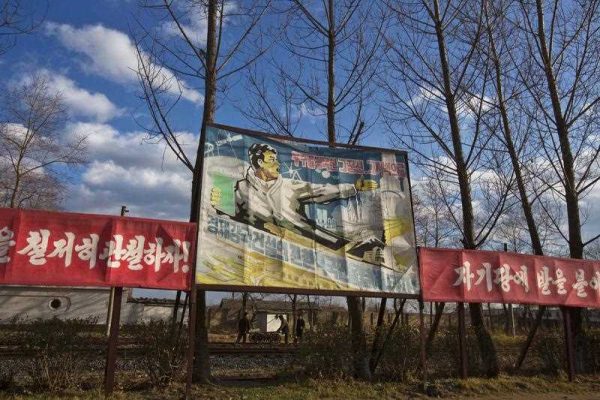Serious corruption, severe bureaucratic hurdles, a weak industrial base and poor infrastructure, all significantly increase investment risks. As a result, the majority of Chinese investors have found their investments to be unprofitable. So why do many Chinese investors choose to stay in North Korea?
To answer this question we conducted in-depth interviews in Northeast China with over 20 Chinese investors who have long-term investments in North Korea. Many of these investors have faced the dilemma of whether to stay in North Korea or not at some point. Based on these interviews, there are three main reasons that motivated investors to persist in North Korea.
First, the decision of investors who are losing money to stay in North Korea can be explained by path-dependence theory. Since most of these investors have a long-term engagement with North Korea, their experience urges them to continue their businesses as a way of maintaining their income. In many cases, investors live along the border between China and North Korea, and have been involved in investment in North Korea for more than 20 years. Such long-term investment has enabled them to accumulate valuable experience but has also led them to become stuck in the North Korean market.
Even though most investors complained about North Korea’s poor investment environment during their interviews, they admitted that they have never considered ceasing their investments because they do not have the skills or experience to run other businesses. For example, one man who runs an import–export business in North Korea said: ‘I have been investing in North Korea for decades, hence even though North Korea is no longer a good investment place, what else can I do except for maintaining my current investment?’
The second reason why some investors who are losing money choose to remain in North Korea is to recover their losses, or at least break even. Poor financial status forces these investors to stay in North Korea because they have invested the majority of their capital into North Korean businesses. Therefore, even though they are eager to withdraw from North Korea, they can only gradually reduce their investments. For example, one investor in a building materials business claimed that he has to stay in North Korea because his company has factories and equipment located there he is unable to immediately cancel his investments.
Third, some investors choose to stay in North Korea to familiarise themselves with the North Korean market and look for potentially more profitable business opportunities. These investors often invest in maintenance or import–export businesses that do not require considerable capital or labour. In doing so, they use their current unprofitable businesses to collect information about what kind of businesses might be profitable and gain practical knowledge about how to operate in North Korea. These investors might also attempt to take advantage of their current small investments to build up sufficient social networks for larger investments in the future.
YaoHui Wang is a PhD student in Political Science at the University of Kansas and XiaoTong Zhao is a student at the University of Sydney.

